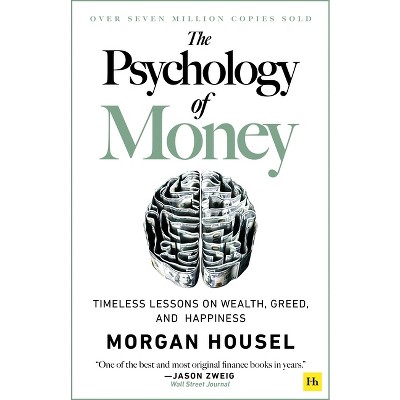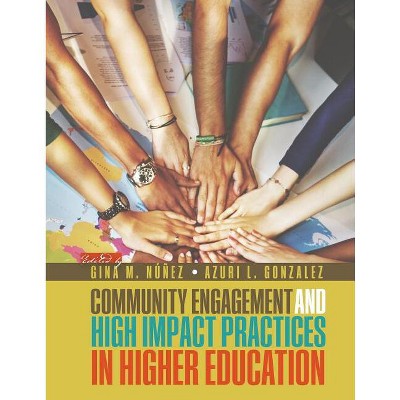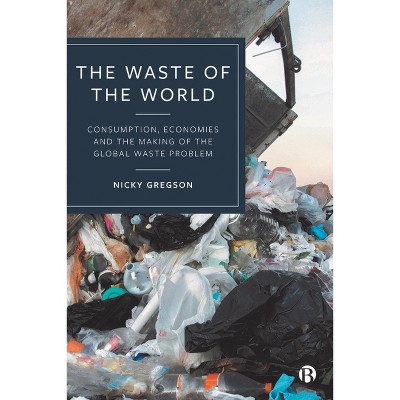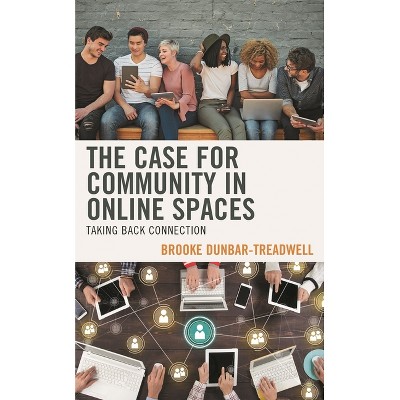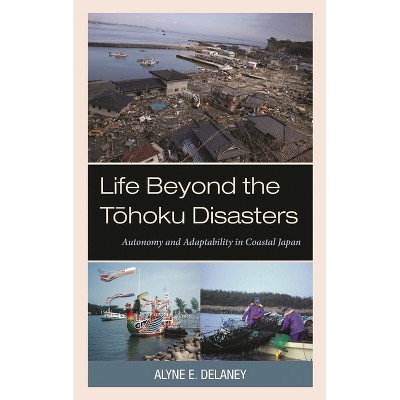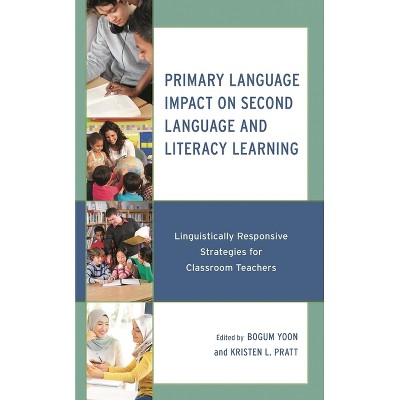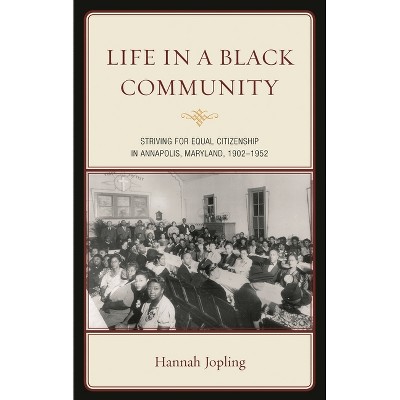Industrial Disasters, Toxic Waste, and Community Impact - by Francis O Adeola (Hardcover)

About this item
Highlights
- Industrial Disasters, Toxic Waste, and Community Impact focuses on hazardous and toxic wastes releases, industrial disasters, the consequent contamination of communities and the environment, and the subsequent social impacts, including adverse health effects, deaths and property destruction, psychosocial problems, and community disruption.
- About the Author: Francis O. Adeola is professor of sociology at the University of New Orleans.
- 306 Pages
- Social Science, Human Geography
Description
About the Book
In the post-World War II period, modern societies have developed numerous heterogeneous synthetic organic compounds released into the environment and human habitats. This book addresses the threats posed by these contaminants and other hazardous wastes to human health and the ...Book Synopsis
Industrial Disasters, Toxic Waste, and Community Impact focuses on hazardous and toxic wastes releases, industrial disasters, the consequent contamination of communities and the environment, and the subsequent social impacts, including adverse health effects, deaths and property destruction, psychosocial problems, and community disruption. This book explains the emergence of a sociological study of risk and of natural, technological, and hybrid disasters, along with a review of the accumulated body of knowledge in the field. It is unique in its integration of sociological perspectives with perspectives from other disciplines when discussing the problems posed by technological hazards both in advanced industrialized societies and in the underdeveloped world.
Francis O. Adeola extends the field through an innovative presentation of topics which up to now have had sparse treatment in sociology texts. This book starts by presenting the sociology of hazardous waste, risk, and disasters as a relatively new development, engendering both a growing passion and an increasing volume of empirical research among scholars. Next, it describes how hazardous and toxic wastes disposal, exposure, remediation, and proximate adverse health consequences have risen to the level of endemic social problem both in the United States and around the world. After discussing these cases in relation to contemporary theories of industrial and organizational disasters, Adeola delves into classifying of hazardous wastes, indicating the characteristics of each type of waste, and identifying what makes them especially dangerous to people and the environment. Other major topics addressed in the rest of the book include electronic waste (e-waste) as a new species of trouble in terms of the volume and toxicity of global e-waste generation and management, the environmental and health risks of Persistent Organic Pollutants (POPs), case studies of contaminated communities within the United States and across the globe, the international flows of toxic waste, analysis of risk and environmental contamination by race and ethnicity in the United States, and the juxtaposition of the issues of environmental justice and human rights. With its many contributions to environmental sociology, Industrial Disasters, Toxic Waste, and Community Impact will be a valuable addition to the libraries of students, scholars, and practitioners interested in the intersection of toxic waste releases, human exposure to contaminants, and public health.Review Quotes
"Francis Adeola takes on the highly confusing topic of modern society's wastes--hazardous wastes, toxic wastes, waste production, waste disposal, waste trafficking, anthropogenic hazardous disasters, and the effects of wastes on human health and communities. He offers much needed conceptual clarity in his examination of "the dark side of modern science and technology." He describes the unique difficulties in monitoring and controlling wastes and suggests that our best hope for protecting ourselves lies at the bottom--at the grassroots, where citizens stand up for their communities." --Sherry Cable, University of Tennessee - Knoxville
"Industrial Disasters, Toxic Waste, and Community Impact: Health Effects and Environmental Justice Struggles Around the Globe presents a balance between the United States and the International scholarly advancement of the environmental sociology literature on environmental risks. This book will be an excellent resource for environmental just scholars to add to their collection. Glenn S. Johnson, Clark Atlanta University, co-author of Environmental Health and Racial Equity in the United States: Building Environmental Just, Sustainable, and Livable Communities." --Glenn S. Johnson "Writing primarily from a sociological perspective, Adeola (Univ. of New Orleans) addresses historical and contemporary issues related to industrial disasters. The book's scope is large, encompassing theories of industrial disasters, various types of wastes, and their sources and properties, waste-related regulations in the United States and internationally, and environmental justice. The case studies are a strength of the work; they include some of the world's best-known chemical and radiation disasters in both developed and developing countries, such as Bhopal (India), Chernobyl (Ukraine), and Koko (Nigeria), and the integration of experiences of the affected communities. Environmental sociologists may revel in the call for citizen action, but the more technical successes of waste reduction and life cycle perspective also deserve attention. Summing Up: Recommended." --Choice ReviewsFrancis Adeola takes on the highly confusing topic of modern society's wastes--hazardous wastes, toxic wastes, waste production, waste disposal, waste trafficking, anthropogenic hazardous disasters, and the effects of wastes on human health and communities. He offers much needed conceptual clarity in his examination of "the dark side of modern science and technology." He describes the unique difficulties in monitoring and controlling wastes and suggests that our best hope for protecting ourselves lies at the bottom--at the grassroots, where citizens stand up for their communities.
Industrial Disasters, Toxic Waste, and Community Impact: Health Effects and Environmental Justice Struggles Around the Globe presents a balance between the United States and the International scholarly advancement of the environmental sociology literature on environmental risks. This book will be an excellent resource for environmental just scholars to add to their collection. Glenn S. Johnson, Clark Atlanta University, co-author of Environmental Health and Racial Equity in the United States: Building Environmental Just, Sustainable, and Livable Communities.
Writing primarily from a sociological perspective, Adeola (Univ. of New Orleans) addresses historical and contemporary issues related to industrial disasters. The book's scope is large, encompassing theories of industrial disasters, various types of wastes, and their sources and properties, waste-related regulations in the United States and internationally, and environmental justice. The case studies are a strength of the work; they include some of the world's best-known chemical and radiation disasters in both developed and developing countries, such as Bhopal (India), Chernobyl (Ukraine), and Koko (Nigeria), and the integration of experiences of the affected communities. Environmental sociologists may revel in the call for citizen action, but the more technical successes of waste reduction and life cycle perspective also deserve attention. Summing Up: Recommended.
About the Author
Francis O. Adeola is professor of sociology at the University of New Orleans.




